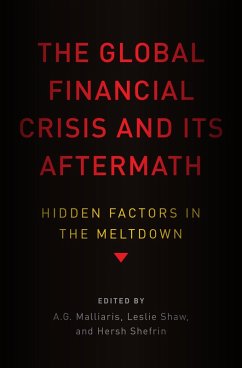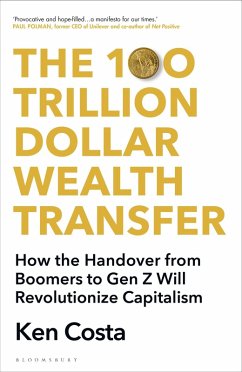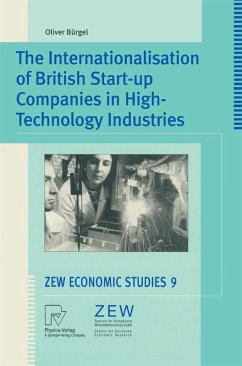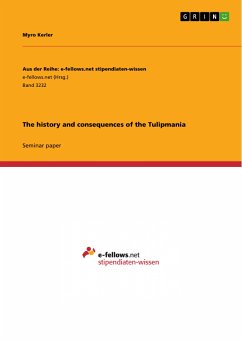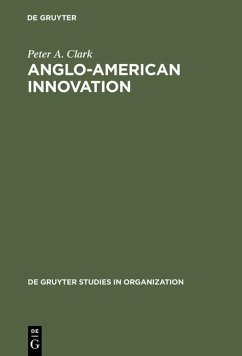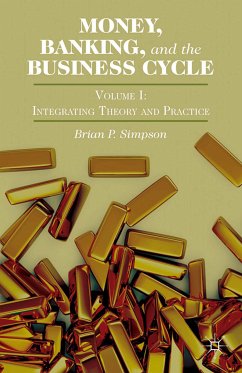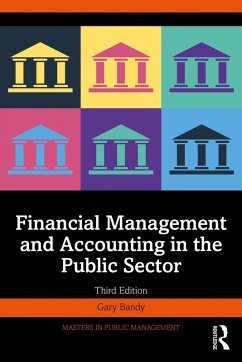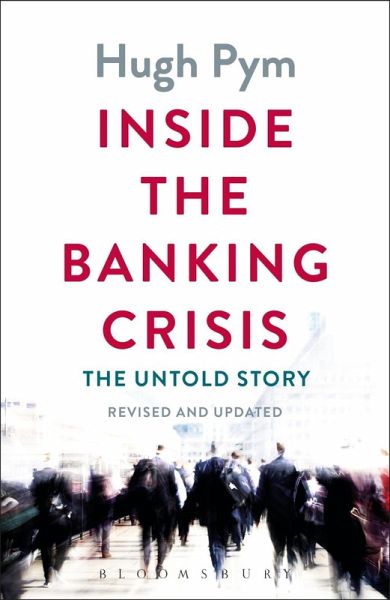
Inside the Banking Crisis (eBook, PDF)
The Untold Story

PAYBACK Punkte
5 °P sammeln!
It was one of the gravest challenges faced by any British government in peacetime. The banking system, taken for granted by most of the population to pay for life's essentials, came close to collapse. Yet nobody going about their business in October 2008 had any inkling how vulnerable the nation's financial infrastructure was. Nobody, that is, bar a small group of policymakers and ministers working frantically in Whitehall and the City of London.Royal Bank of Scotland, larger than the entire annual output of the UK economy, had toppled. Another banking giant Halifax/Bank of Scotland was in des...
It was one of the gravest challenges faced by any British government in peacetime. The banking system, taken for granted by most of the population to pay for life's essentials, came close to collapse. Yet nobody going about their business in October 2008 had any inkling how vulnerable the nation's financial infrastructure was. Nobody, that is, bar a small group of policymakers and ministers working frantically in Whitehall and the City of London.
Royal Bank of Scotland, larger than the entire annual output of the UK economy, had toppled. Another banking giant Halifax/Bank of Scotland was in desperate need of a bailout. A staggeringly large bill had to be paid to stave off disaster. But could Britain afford it? Might foreign investors conclude that the UK's public finances could not take the strain and the game was up? Yet doing nothing might have seen cash machines closed, depositors panicking and troops on the streets.
These were the appalling dilemmas facing Downing Street, the Treasury and financial regulators in the darkest hours of the crisis triggered by the crash of the US bank Lehman Brothers. As political leaders in the United States confronted challenges to their own system, their British counterparts could rely on nobody for help. A solution had to be found and fast. To their immense credit, a rescue package was unveiled and markets were reassured. But saving the banks was one thing - securing their future to the benefit of taxpayers and customers was another. Decisions made since the traumatic weeks of October 2008 have cast a long shadow.
The UK economy is still bearing the scars. RBS is not repaired, some small businesses are struggling to get credit and public appetite for explanations of what happened remains high.
This book is the definitive insider's guide to the UK banking crisis, the drama and characters involved in the collapse of some of the major pillars of British banking and the commitment of £66 billion of taxpayers' money. This as yet untold story is informed by conversations with highly placed policymakers, including many of the key players, and explains what really happened behind closed doors in Downing Street and the City.
Royal Bank of Scotland, larger than the entire annual output of the UK economy, had toppled. Another banking giant Halifax/Bank of Scotland was in desperate need of a bailout. A staggeringly large bill had to be paid to stave off disaster. But could Britain afford it? Might foreign investors conclude that the UK's public finances could not take the strain and the game was up? Yet doing nothing might have seen cash machines closed, depositors panicking and troops on the streets.
These were the appalling dilemmas facing Downing Street, the Treasury and financial regulators in the darkest hours of the crisis triggered by the crash of the US bank Lehman Brothers. As political leaders in the United States confronted challenges to their own system, their British counterparts could rely on nobody for help. A solution had to be found and fast. To their immense credit, a rescue package was unveiled and markets were reassured. But saving the banks was one thing - securing their future to the benefit of taxpayers and customers was another. Decisions made since the traumatic weeks of October 2008 have cast a long shadow.
The UK economy is still bearing the scars. RBS is not repaired, some small businesses are struggling to get credit and public appetite for explanations of what happened remains high.
This book is the definitive insider's guide to the UK banking crisis, the drama and characters involved in the collapse of some of the major pillars of British banking and the commitment of £66 billion of taxpayers' money. This as yet untold story is informed by conversations with highly placed policymakers, including many of the key players, and explains what really happened behind closed doors in Downing Street and the City.




